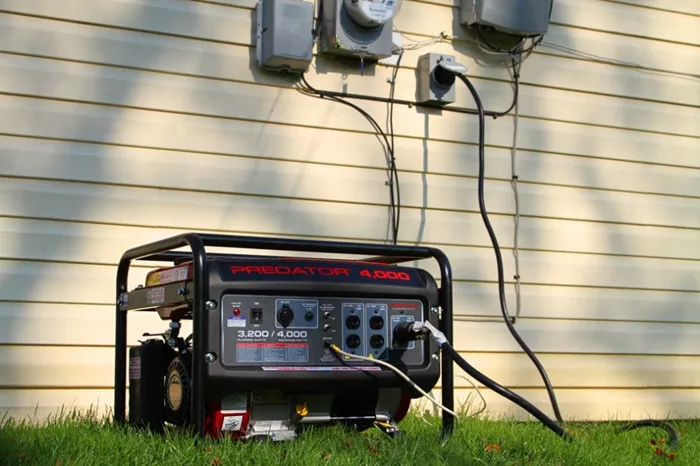A reliable generator is essential for homeowners who want to ensure uninterrupted power during outages. Whether you live in an area prone to storms or simply want a backup power source, choosing the right generator requires understanding key electrical concepts. This guide will help you make an informed decision by covering types of generators, power requirements, fuel options, and safety considerations.
Understanding Different Types of Generators
Generators come in various types, each suited for different needs. Knowing the differences will help you pick the best one for your home.
Portable Generators
Portable generators are the most common choice for temporary power. They run on gasoline, propane, or diesel and can power essential appliances like refrigerators, lights, and fans. These generators are affordable but require manual operation and proper ventilation to prevent carbon monoxide poisoning.
Inverter Generators
Inverter generators are a quieter, more efficient version of portable generators. They produce clean, stable power suitable for sensitive electronics like laptops and smartphones. While more expensive, they are fuel-efficient and ideal for camping or small home backup needs.
Standby Generators
Standby generators are permanently installed and automatically turn on during a power outage. They run on natural gas or propane and can power an entire home. These are the most expensive but provide seamless backup power without manual intervention.
Calculating Your Power Needs
Before buying a generator, determine how much power your household requires. This ensures you don’t overload the generator or buy one that’s too weak.
Starting vs. Running Watts
Starting Watts (Surge Power): The extra power needed when appliances first turn on (e.g., refrigerators and air conditioners require more power at startup).
Running Watts: The continuous power needed to keep appliances running.
Check appliance labels or manuals for wattage requirements. Add up the running watts of all devices you plan to use simultaneously, then account for the highest starting wattage.
Sample Power Requirements
Refrigerator: 600–800 running watts, 1,200–2,000 starting watts
Sump Pump: 800–1,500 running watts, 1,300–2,800 starting watts
Window AC Unit: 1,000–1,500 running watts, 1,800–2,500 starting watts
A generator with at least 5,000–7,500 watts can handle essential home appliances.
Choosing the Right Fuel Type
Generators run on different fuels, each with pros and cons.
Gasoline
Pros: Readily available, affordable upfront cost.
Cons: Short shelf life (stabilizers needed), less efficient in cold weather.
Propane
Pros: Longer shelf life, cleaner burning, works well in cold temperatures.
Cons: Requires storage tanks, may be less efficient than gasoline.
Diesel
Pros: Fuel-efficient, durable for heavy use.
Cons: Noisy, expensive upfront cost, emissions concerns.
Natural Gas
Pros: Continuous supply if connected to a gas line, low maintenance.
Cons: Requires professional installation, may not work during gas line disruptions.
Safety Considerations
Generators can be hazardous if not used correctly. Follow these safety tips:
Proper Ventilation
Never run a generator indoors or in an enclosed space. Carbon monoxide (CO) is a silent killer—always place the generator outside, at least 20 feet from windows and doors.
Transfer Switches
A transfer switch prevents backfeeding, which can electrocute utility workers. For standby generators, an automatic transfer switch is essential. For portable models, a manual transfer switch is recommended.
Regular Maintenance
- Change oil and filters as recommended.
- Test the generator monthly.
- Store fuel safely and use stabilizers if needed.
Additional Features to Consider
Electric Start vs. Pull Start
Electric Start: Convenient but requires a battery.
Pull Start: Reliable but may be difficult in cold weather.
Noise Levels
Inverter generators are quieter (50–60 dB) compared to conventional models (70+ dB). Check decibel ratings if noise is a concern.
Warranty and Support
Choose brands with good warranties (at least 2–3 years) and local service centers for repairs.
Conclusion
Buying a home generator involves assessing power needs, fuel options, and safety features. Whether you choose a portable, inverter, or standby model, proper sizing and maintenance ensure reliable backup power. By understanding these factors, you can select the best generator for your home and stay prepared for any outage. Would you like recommendations for specific generator models based on your needs? Let us know in the comments!

